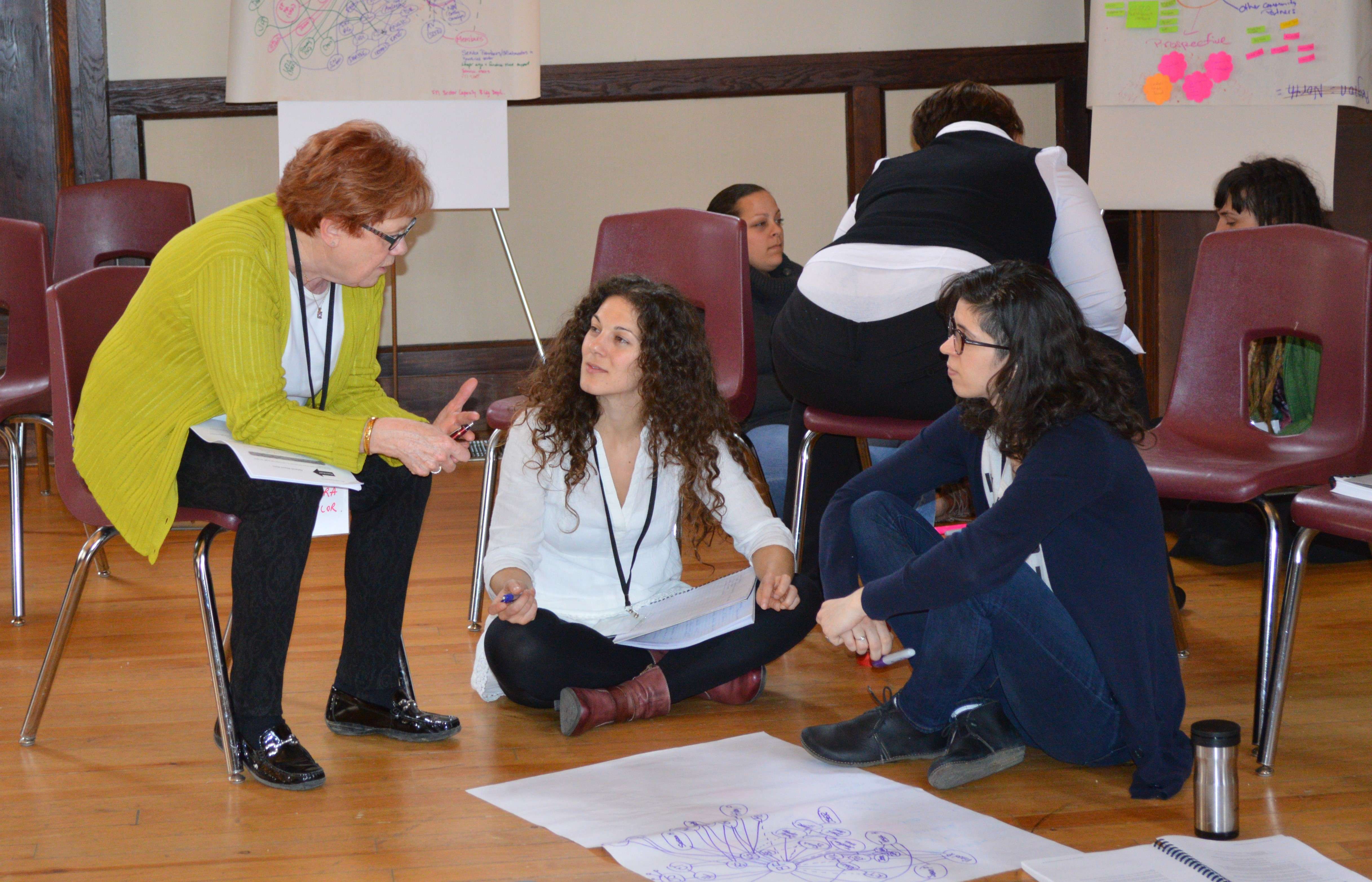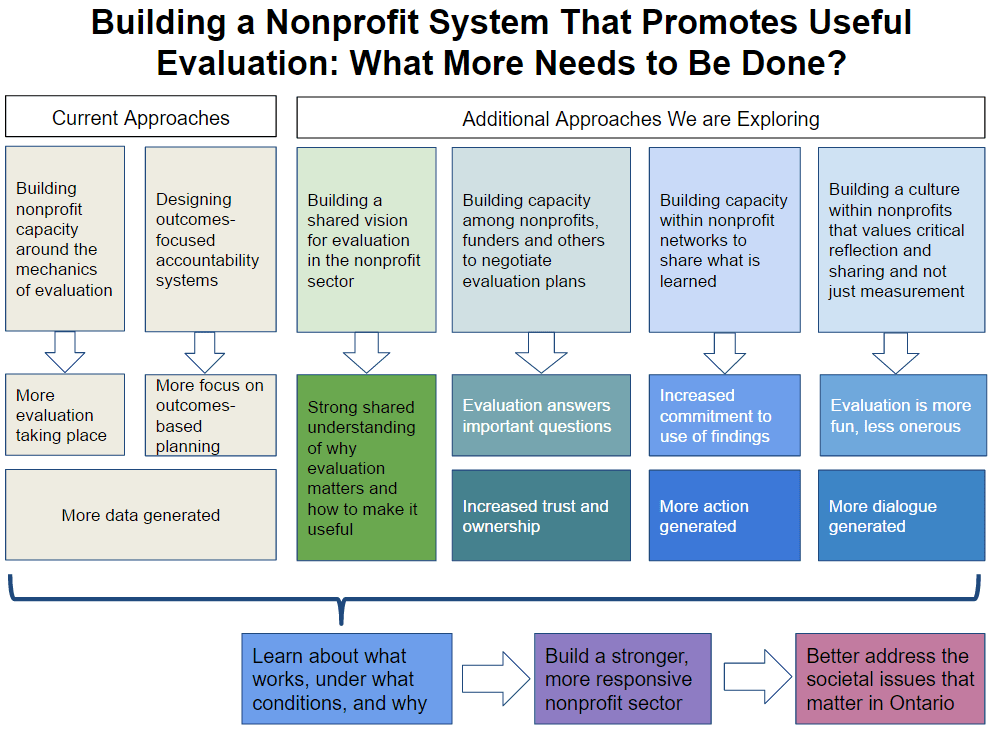
Blog
Making Evaluation Work for Nonprofits: Our Theory of Change – Archived Content
If we are to make evaluation work for nonprofits, we need to rethink the system of evaluation. This means looking into the reasons why evaluation isn’t working as well as it should and figuring out how together we can make necessary improvements.
As part of our early research, we spoke with a number of individuals to help us gain further insight into what is happening right now. Here are four comments that speak to some of the big issues in the sector around evaluation.
1. Ontario nonprofit leaders are under a lot of pressure to evaluate their work. This will likely be of little surprise to many of you. As an example of how extreme that pressure can be, one person we spoke to from a multi-service agency told us that in one year she had to write 164 reports about half of which were to government ministries and produced over 2000 different measures.
2. There is much good evaluation work occurring in the nonprofit sector and this work can take various forms. For instance, in one of our interviews, we were told about an organization’s day-long facilitated conversation where staff and summer students reflected honestly on the past programming year and set priorities for the coming year. The session allowed for a rich discussion that might not have otherwise taken place and helped to inform action. Initiated by the organization, it didn’t involve a lot of resources and was seen as a productive exercise by the participants.
3. Evaluations can work well when there is an opportunity for all stakeholders to provide input. Moreover, the ability to negotiate different needs can play an important role in getting buy-in. One of our interviewees spoke to this point, “In our project, we had three national partners. Within each community there were different sectors involved — business, people living in poverty, etc. There were a lot of meetings that involved a lot of time and angst. We had to challenge ourselves a lot. We need to create resources that give enough guidance to engage in this kind of process.”
4. Nonprofits understand the need to be accountable but, when this is the sole focus it diminishes the potential to help nonprofits achieve their mission through learning and the resulting action. As one of our interviewees put it, “We have to please the funders. What do they want to know to justify their investment? But equally important is helping communities understand their own story and where they may have changed direction. So we need the evaluation to be a learning document that everyone can use.”
In sum, while there is a lot of good work that is taking place, at a systems level there is still a gap in terms of whether evaluation is really benefitting nonprofits and leading to new insights on a consistent basis.
As we move into the next phase of our efforts to develop a Sector Driven Evaluation Strategy, we realize that we need to go above and beyond some of the capacity-building evaluation work that is already being done and consider some new approaches.
Our theory of change outlines our focus for the work still to come. It is based on the premise that while there is a lot of focus on evaluation for certain purposes, i.e., to build capacity around the mechanics of evaluation and to ensure accountability, we still have more to do. For this reason, we believe that we need to explore some additional approaches in order to get the most out of evaluation. In particular, we want to focus on:
– Building a shared vision for evaluation in the nonprofit sector
– Building capacity among nonprofits, funders and others to negotiate evaluation plans
– Building capacity within nonprofit networks to share what is learned
– Building a culture within nonprofits that values critical reflection and sharing and not just measurement
Our theory of change:

In the coming weeks, we’ll share our vision and a set of principles for nonprofit evaluation. In addition, we will produce a negotiation guide that can help empower nonprofits to have more of a say in designing and performing an evaluation and asking the questions that really matter to them.
Help us as we move forward and share with us the lessons you’ve learned, the stories you think we need to know, and how we can create a more enabling evaluation ecosystem. Get in touch and share your thoughts with us.
Stay tuned!


